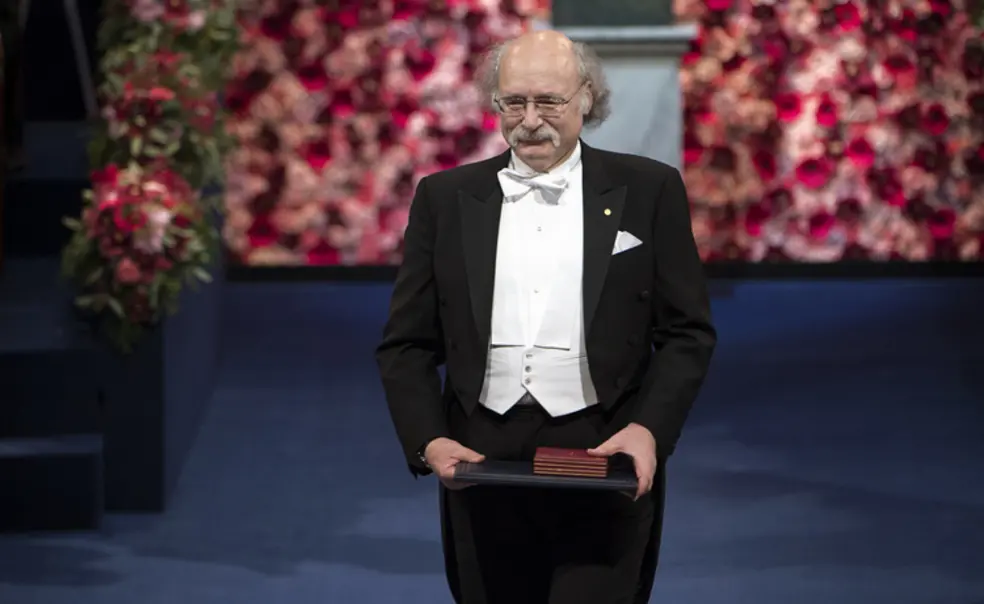At about 4:30 a.m. Oct. 4, physics professor F. Duncan Haldane received a phone call from Sweden, notifying him that he’d been selected to receive the Nobel Prize in physics. Just over two months later, also at about 4:30 a.m., the newly awarded laureate was sitting on a couch outside of a “silent disco,” holding a beer and quietly chatting with a friend.
When I received a ticket to the Students’ Nobel Nightcap, the extravagant, unofficial after-party of the Dec. 10 Nobel ceremony, I hoped I might get to chat with Haldane. But when I did not come across him earlier in the evening, I thought that catching up with him had become about as likely as finding this year’s prize winner in literature.
I introduced myself, and Haldane warmly invited me to sit with him on the couch to discuss what it’s been like attending so many events in his honor. “It’s cool,” he said nonchalantly in a calm British accent.
Of course, Haldane added, one doesn’t start a career in physics with the intention of receiving a Nobel prize. He noted that laureates sometimes stop contributing scientific research after winning the award because they get caught up in invitations to perform other tasks, like speaking engagements and serving on boards. The key, said Haldane, is to know which invitations to decline.
Haldane seemed humbled to maintain a legacy of Nobel prizes won throughout his scientific pedigree. His doctoral adviser, Philip Warren Anderson, previously won the prize, and Anderson’s adviser, John Hasbrouck Van Vleck, also received the award. Two of Haldane’s own students — a former undergraduate thesis student and a former graduate student, now both physics professors — accompanied Haldane to Stockholm for the ceremony. He joked that perhaps one of them will be the student of his to win a Nobel and keep up the tradition.
Rachel Bergman ’16 majored in molecular biology with a certificate in global health and health policy and is now completing a master’s degree in global health at Karolinska Institutet in Stockholm.












No responses yet